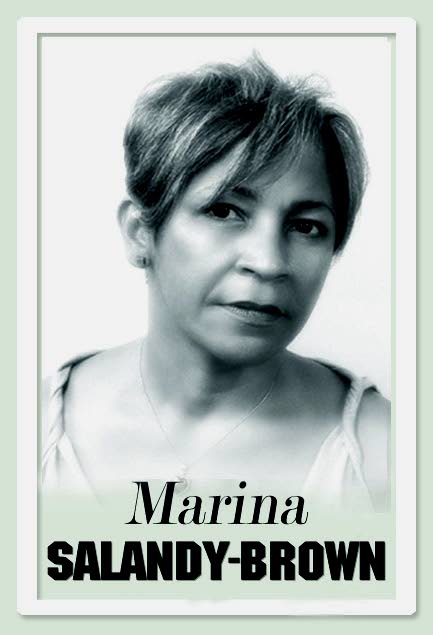A tale of three islands

A quick, recent steal of four days in Barbados was an acute reminder of how lucky TT is and how negligent we have been of our many advantages.
Whenever I hear Tobago politicians complain about how badly Trinidad treats them and how much more they want from the national coffers I raise an eyebrow. I think of them as spoiled brats but, as we all know, behaviour is mostly determined by upbringing and early experiences, and here we have to point to opportunistic politicians who have over indulged our fellow countrymen on our sister island.
And it would be fair to say that we in Trinidad, too, have been very spoiled, which may go some way in explaining how we came, jointly, to mismanage our good fortunes, post-colonial fallout notwithstanding.
I was helped in this by Anthony Trollope. I happened upon my old copy of a unique and of-its-time book of travel writing by the revered English novelist, who was also a civil servant. In 1858 he was given the job of reorganising “the decrepit postal system of the West Indies.”
Writing in The West Indies and The Spanish Main, published in 1859, Trollope describes his journey through the region. He captured what is still true today when you compare Barbados and Trinidad. Approaching by ship through the Bocas he says, “No scenery can be more picturesque than that afforded by the entrance of Port of Spain,” and he goes on about the elegant grid layout of our capital city, “The time will come, and that before long, when it will be the best town in the British West Indies. There is at present in Port of Spain a degree of commercial enterprise quite unlike the sleepiness of Jamaica or the apathy of the smaller islands.”
This is his description of the magnificence of the view towards the lush and empty Northern Range from around the Savannah: “It is hardly within the compass of a man’s eye and imagination to add anything to the scene.”
He also gives a nod to our future wealth – the by-products of our bed of oil, which had not yet been discovered, but of which the Pitch Lake and the 19th-century discovery of coal were predeterminants.
About Barbados, on the other hand, he had this to say: “Barbados is a respectable little island…It is not picturesquely beautiful and therefore has but few attractions for strangers...there is not a rood of waste land in Barbados…I doubt whether there is even room for a picnic.”
Yet Barbados– overpopulated, teeming with ex-slave hands for hire (unlike Trinidad), a mecca of successful, super wealth-creating slavery and almost no racial mixing, for centuries, every inch of its land given over to soil-impoverishing sugarcane and lacking other natural resources except its beautiful beaches – managed in the 20th century to become a beacon of socio-economic success.
When the special trade conventions with the European Union expired at the end of the last millennium and dealt a body blow to what was left of Barbados’s once enviable sugar industry, that had made its planters the richest in the world and able to hold the king to ransom, Barbados had to rely almost exclusively on its tourism product.
Just as the Barbadians had turned their sugarcanes into sweet gold, they turned their flat and geographically unexciting island into one of the most desirable tourist destinations in the world.
This newspaper recently published a brave letter by Dennise Demming addressed to all the people who share WhatsApp messages every time the Barbados Prime Minister, Mia Mottley, says with great oratorical flair what we all know to be true about the enormous challenges facing not only her tiny country but the entire region.
Denning ordered them to “Stop it!” We have the leadership we have and we must get on with it. No point lamenting, she says, that we do not have such a leader as Mottley with the gift of the mot juste.
And she is right. We could no more be Barbadians, nor think and act like them, if we tried. We are a product of our history, our geography, the nature of our settlement, the de-facto religious, ethnic and cultural melting pot that we are.
Our wealth and our poverty are derived from that reality, regardless of the oil riches and Garden of Eden fertile soils we possess, not in one, but two islands. The details of our divergent histories cannot be gone into here, but enough to say that we and the Bajans are like chalk and cheese.
Yet, TT could learn much from the Bajans about the business of tourism. For a start, idyllic Tobago should contribute greater tourist revenue to the national economy.
But with Tobagonians not needing to rely on tourism, when the THA employs most people in some form or another, the impetus may be lacking. Furthermore, the destruction of Tobago’s extraordinary natural beauty is in hand and the pointless new airport will expedite it.
Poor little, rich TT – so much good fortune and so little sense!


Comments
"A tale of three islands"